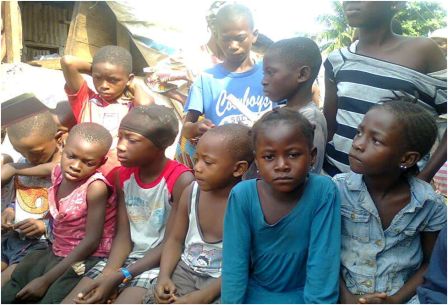International Day of the African Child: has Africa learnt its lessons?
Forty-five years ago, in a country in the grip of the much-hated Apartheid system, and in a city called Soweto in South Africa, what started as a peaceful student protest turned violent and nasty when police opened fire on unarmed students. The “offence” committed by the victims (students) was: “taking to the streets and protesting against the inferior quality of their education and to demand their right to be taught in their own language.” Hundreds of young boys and girls were shot and in the two weeks of protests that followed in Soweto and other cities in South Africa, more than a hundred were killed and those injured passed the one thousand mark.
To honour those killed and recognise the courage of all those who marched, the Day of the African Child has been celebrated on 16th. June every year since 1991, when it was first initiated by the then Organization of African Unity, now African Union.
There is a lot that the anniversary teaches not only to African leaders but to everyone with good intentions for the future of the African continent. The day draws attention to the lives of all African children today, and people are reminded about the unfortunate stark realities of children who are trafficked, sexually exploited, physically and emotionally abused, and deprived in all shapes or forms. Child focussed agencies such as UNICEF are keen to remind governments and their people of the need to ensure children are given the right to participate and to be seen and heard, and be guaranteed a life worth living instead of sweeping their humble demands under the carpet and shooting at them.
June 16th also aims at raising awareness of the continuing need for improvement of the education provided to African children. Our children are Africa’s future, engines for growth, the candles and stars that will light the way of the continent to greatness. Our children are a precious resource and they should be seen and treated as such. They deserve no less. To enable all children in Africa to go to school, to learn and to develop in positive conditions, as well as to shape the Africa of tomorrow, it is necessary to bring to an end the lack of electricity. Millions of African children do not have access to electricity and they study “in the dark” using candles and lamps. Tackling food insecurity and extreme poverty should also be at the top of every African government agenda that wishes well for its children. Our children and young people should have easy access to food and clean water and they should not be easy victims of conditions such as pneumonia, diarrhoea, malaria, typhoid, measles and HIV/Aids to name a few.
The anniversary should be seen as a wakeup call for all African governments, NGOs, international organisations and other stakeholders to discuss with seriousness and commitment, the challenges to the full realization of the rights of children in Africa and how these challenges can be circumvented and translated into golden opportunities for African children.
On this anniversary, the world’s attention is also drawn to the fact that children have a better chance of thriving or meeting developmental milestones when their primary carers enjoy a reasonably good standard of living. In many parts of Africa, especially rural Africa, the primary carer is the mother. Unfortunately however, this is the individual who works hardest and longest, but eats the smallest and cheapest portion of food in the home. Besides, she also faces physical and emotional abuse on a regular basis. When this is the case, it cannot be denied that the woman’s functioning as a mother and primary care giver will be largely compromised. The average African child then suffers the double jeopardy of being born not only in a community that is deprived and pays little respect to children’s rights, but also one in which the primary carer (the mother) has slim chances of survival or being happy in her role of motherhood.
It is high time that we all recognized the great responsibility that we have to enlighten our populations about Children’s and Women’s Rights and urging our social and political leaders to bid adieu to lip service and translate rhetoric into action by meaningfully and seriously implementing international children’s and women’s rights laws and conventions. Only and only then can we guarantee our children a future filled with cheerfulness and smiles instead of one of tears and emotional bruises. For Africa to shine and blossom tomorrow, let us develop today and maintain the machines and engines (our children ) that will make that development possible.
God bless the children of Africa.
Eddie Tedson, UK
Stay with Sierra Express Media, for your trusted place in news!
© 2021, https:. All rights reserved.






